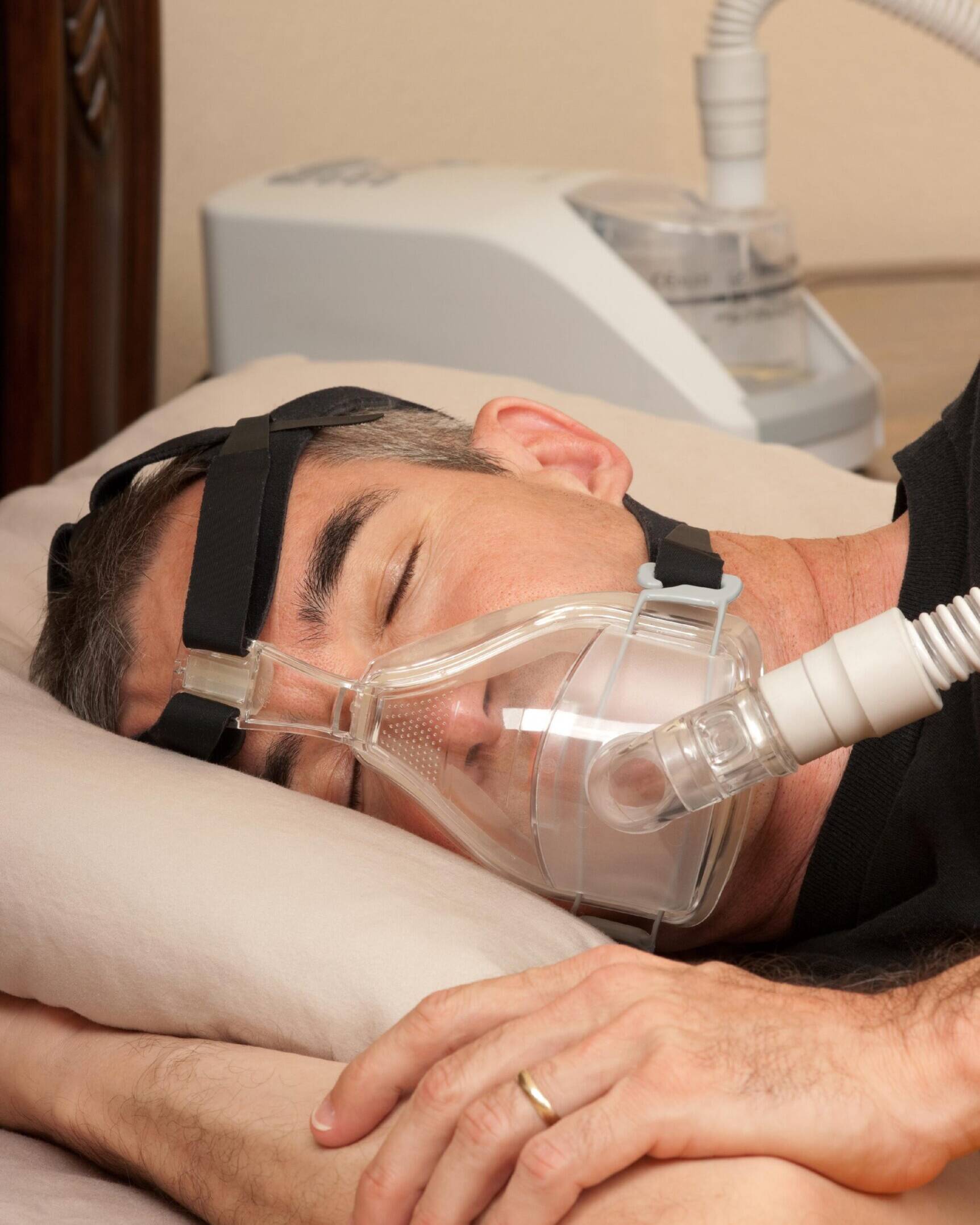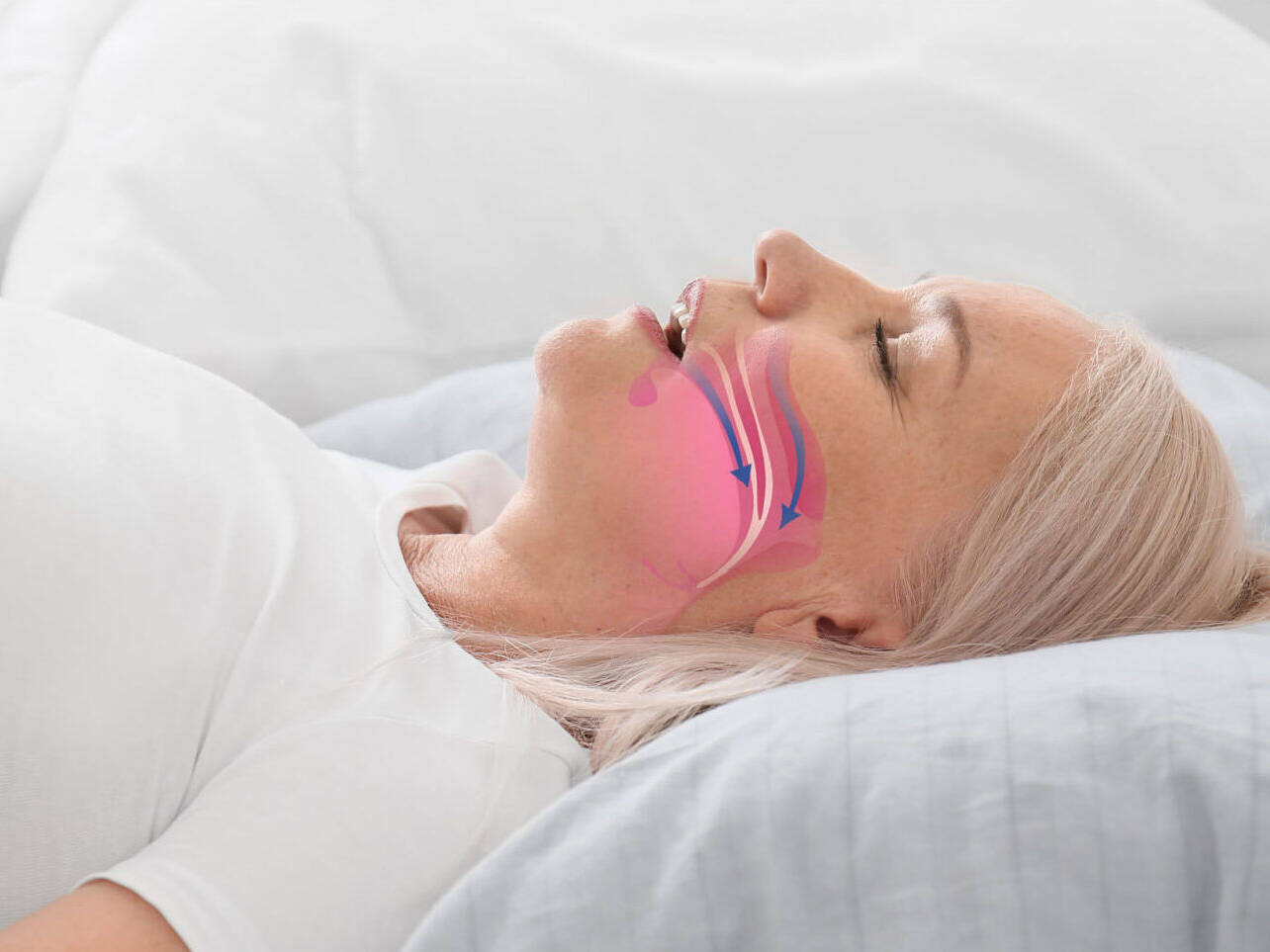
Understanding Obstructive Sleep Apnea (OSA)
Obstructive Sleep Apnea (OSA) is a serious sleep disorder that causes repeated interruptions in breathing during sleep. These interruptions occur when the tongue and soft tissues collapse against the back of the throat, blocking the airway and preventing oxygen from reaching the lungs. As oxygen levels drop, the brain signals the body to partially awaken, allowing airflow to resume—often accompanied by a loud gasp or choking sound.
This disruptive sleep cycle can occur hundreds of times per night, preventing deep, restorative sleep and leading to significant health risks.
The Serious Health Risks of Sleep Apnea
If left untreated, OSA can lead to severe health complications, including:
- High blood pressure & heart disease – Repeated oxygen deprivation puts excess strain on the heart.
- Increased risk of stroke – Interrupted breathing patterns contribute to poor cardiovascular health.
- Excessive daytime fatigue – Leading to reduced concentration, poor work performance, and a higher risk of accidents.
- Depression & mood disorders – Chronic sleep disruption can negatively affect mental health.
- Loss of focus & memory problems – Oxygen deprivation can impair cognitive function over time.
Some patients may have a milder form of obstruction known as Upper Airway Resistance Syndrome (UARS), which still results in poor sleep quality and similar symptoms.


Diagnosis & Evaluation
The first step to effective treatment is recognizing the symptoms and seeking professional consultation. At Kissimmee Oral Surgery, we conduct a thorough assessment to determine the severity and source of airway obstruction.
Our diagnostic process may include:
- Cephalometric (Skull X-Ray) Analysis – Evaluates airway structure and obstruction level.
- Flexible Fiber-Optic Exam – A naso-pharyngeal exam to visually assess airway blockages.
- Sleep Study (Polysomnography) – An overnight sleep test to monitor oxygen levels, breathing patterns, and cardiovascular impact.
Treatment Options for Sleep Apnea
There are several effective treatment options available, depending on the severity of the condition:
- Nasal CPAP (Continuous Positive Airway Pressure) – A non-surgical option that delivers pressurized oxygen through a nasal mask to keep the airway open at night.
- Uvulo-Palato-Pharyngo-Plasty (UPPP) – A surgical procedure to remove excess tissue from the soft palate and throat, reducing airway obstruction.
- Laser-Assisted Uvulo-Palato-Plasty (LAUPP) – A minimally invasive laser treatment to tighten the soft palate, improving airflow.
- Radio-Frequency Treatment – Uses a radio-frequency probe to shrink and tighten soft tissues in the airway.
- Orthognathic Surgery (Jaw Advancement Surgery) – For severe cases, the upper and lower jaw can be repositioned to increase airway size and permanently improve breathing. This procedure is performed in a hospital setting under general anesthesia and typically requires a one to two-day hospital stay.

Take Control of Your Sleep & Health
Obstructive Sleep Apnea is a serious condition that requires professional attention. At Kissimmee Oral Surgery, we provide expert diagnosis and advanced treatment options to help you breathe easier, sleep better, and protect your long-term health.